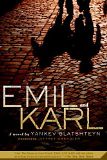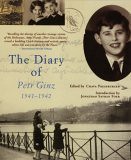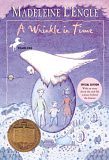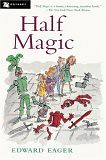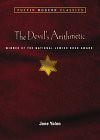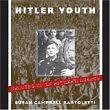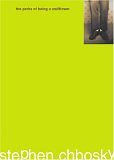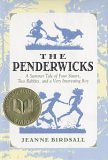When I contacted Bethany House and RWA, I did not contact RT* or Library Journal, even though the book was very favorably reviewed in both places (it was a Top Pick for RT and it got a coveted star from LJ). Not because I didn't want to, but unlike Bethany House and RWA, I have bridges to burn at RT and LJ. (So, full disclosure, I review both for RT and for LJ's sister publication, School Library Journal.) I reached out to people I know and trust at both organizations to seek advice on how best to handle the situation (Should I email the editor-in-chief? The reviews editor? My editor and have her pass it on? etc.)
I got a lot of support and advice, and sat down to craft my emails. Within an hour of contacting Library Journal I had a response that the person I contacted takes the matter seriously, but key people to the conversation are out of the office, so they need to wait. Totally valid and I look forward to seeing what happens.
While I was still crafting my email to RT, my former editor forwarded me an email that had been sent out to their reviewers who cover Inspirational Romance. It is not an official response from RT, but does show they take the issue seriously and is an example of what you SHOULD do in this situation. With permission, I'm posting it here:
Hi inspirational reviewers,
I wanted to reach out to you because of a 2014 inspirational romance that's been getting a lot of attention. You might've heard, but For Such a Time by Kate Breslin was nominated for two RITA awards and received rave reviews from Library Journal — and from us.
For Such a Time's critical acclaim has been a source of great pain for many in the romance community. For those of you who don't know, the central plot involves a blonde, blue-eyed Jewish woman who falls in love with a Nazi commandant who is in charge of a concentration camp. The heroine's appearance allows her to conceal her ancestry and grow close to the SS officer.
This is problematic on many levels. That the heroine's non-"Jewish" appearance saves her is deeply troubling: it essentially — and somewhat insidiously — valorizes not looking "Jewish" without examining the anti-Semitism inherent in that assessment.
But the most painful: For Such a Time casts a Nazi officer — who's presumably overseen the systematic murder of a number of Jews — as a romantic hero. Even viewing this in the most generous light, granting such a character redemption and a happily-ever-after is — at best — hugely insensitive. This book is set against the monstrous historical backdrop of so many lives being brutally extinguished. We're talking about a time when Jews were fleeing their homes in terror, families were separated, children were murdered and buried in mass graves. Let that sink in for a second.
One of the most moving and wrenching moments of my life was when I went to the Josefov, the historically Jewish district in Prague. In the Pinkasova synagogue, there's an exhibit dedicated to children's drawings from Terezin. Terezin was a camp in the Czech Republic where Jews were held before being sent to their deaths at Auschwitz and Treblinka. The children there, mostly orphans, were given art lessons — they drew their homes, they drew what they imagined Israel to be like, they drew what they saw in their dreams. As you might expect, none of those children ever made it home.
When an author chooses to set a story during World War II, right in the thick of one of the most soul-crushing examples of genocide in human history, she takes on a huge responsibility. As does the publisher who sells and distributes her book. As do the people who read and review it. The reason I'm addressing this with you all is that I believe there is a certain lacuna in the publishing industry, particularly in the inspirational/Christian market. I don't say this pejoratively, but merely as a statement of fact: the Christian fiction market is narrow and insular. Because it is written almost exclusively by and for Christians, it's born out of an inherently limited perspective — one that isn't as finely attuned to the struggles of non-Christians as it could or should be.
It raises the question: What can we, as staff of this magazine, do? What can we offer? Empathy. Sensitivity. A conscious effort to broaden our own perspectives.
We gave For Such a Time a Top Pick review, which can't be undone. I'm not here to censor or wrist-slap your ratings and reviews. But I am asking you to strive for a greater awareness when you read and review, especially where it concerns Christian handling of non-Christian religions, history and identity.
To that end, when you have time, here are two posts about For Such a Time and RWA's decision to honor it, from Sarah Wendell of Smart Bitches and from our own reviewer, Jennifer Rothschild, both of whom are Jewish:
http://sarahwendell.tumblr.com/post/125859299894/letter-to-the-rwa-board-regarding-for-such-a-time
http://www.jenrothschild.com/2015/08/an-open-letter-to-bethany-house-and-rwa.html
It would mean a lot to me if you would read both.
Thanks for your time.
See everyone? That's how you do it! You look at the issue head on and confront it. You don't dismiss the people hurt, you listen to them, and you take steps to do better next time.
Easier said than done, but it makes such a difference.
Such a difference.
It's amazing how a little bit of real compassion and respect can do.
*For those following this story who aren't part of Romancelandia, RT is a big romance magazine (it used to be called Romantic Times) We're not talking about Russian State Media.
Links to Amazon are an affiliate link. You can help support Biblio File by purchasing any item (not just the one linked to!) through these links. Read my full disclosure statement.





